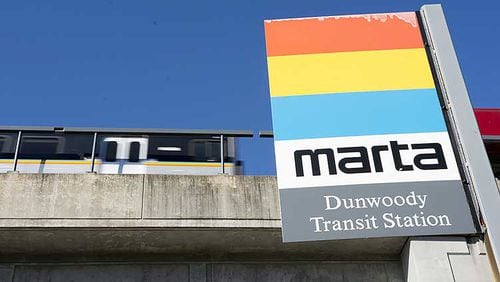A new poll suggests that, a few months before the county's historic transit referendum, an important percentage of Gwinnett voters may still be undecided about MARTA.
The poll conducted by Rosetta Stone Communications spoke with 450 Gwinnett residents who "traditionally vote in off-year elections" and would be likely to vote during the county's stand-alone MARTA referendum in March, president John Garst said.
About 44 percent of those polled said they would vote no on the referendum, while 40 percent said they would vote yes — a spread within the poll’s 4.6-point margin of error. Another 15 percent of voters said they were undecided.
“It was not surprising to me,” Garst, who maintained that the poll was not commissioned by an outside party, told Channel 2 Action News. “People that are traditionally against something are a little more fervent than people that are for something. There’s definitely room for the campaign that will push the MARTA referendum to be able to get a lion’s share of that 15 percent of the vote that’s currently undecided.”
Read the full results of Rosetta Stone Communications’ poll below.
Gwinnett's Board of Commissioners voted in August to approve a contract with MARTA that would, among other things, allow for the transit agency to stretch heavy rail into the county for the first time. An extension would likely be built from the existing Doraville station into the Jimmy Carter Boulevard/I-85 area.
Plans suggest rail could eventually stretch from that new stop all the way to Gwinnett Place Mall.
Other potential offerings include greatly expanded local bus service; more direct bus connections to the Atlanta, Emory University and Perimeter areas; and several bus rapid transit lines.
It’s all dependent on voters approving the March referendum, which, if approved, would ratify the contract and allow the county to collect a new 1 percent sales tax to fund the projects over the next several decades.
Other recent polls and surveys have suggested that a majority of Gwinnett — which has greatly diversified since the county's last MARTA vote in 1990, and has also grown increasingly Democratic — could be in favor of transit expansion.
Transit advocates, though, expressed new concerns after the Gwinnett commission voted to hold the referendum as a stand-alone referendum rather than during November's general election. They fear it could stymie turnout.
"My main take away from this poll is that we need to ensure that all voters have access to the facts about Gwinnett's transit plan and the contract that we have negotiated with MARTA," said Gwinnett Commission Chairman Charlotte Nash, who was instrumental in the creation of state legislation that cleared the way for her county's vote.
“Many of the concerns expressed by respondents are addressed by the plan and the contract.”
The largest concern expressed by voters polled by Rosetta Stone was perhaps unsurprising: increased crime.
Such fears — which were expressed by 30 percent of the Gwinnett voters polled — have existed since the Atlanta area’s original MARTA discussions of the 1960s and ‘70s.
Academic studies have generally found little or no correlation between public transit and crime, especially in suburban areas.
Read the full results of Rosetta Stone Communications’ poll below.
About the Author







